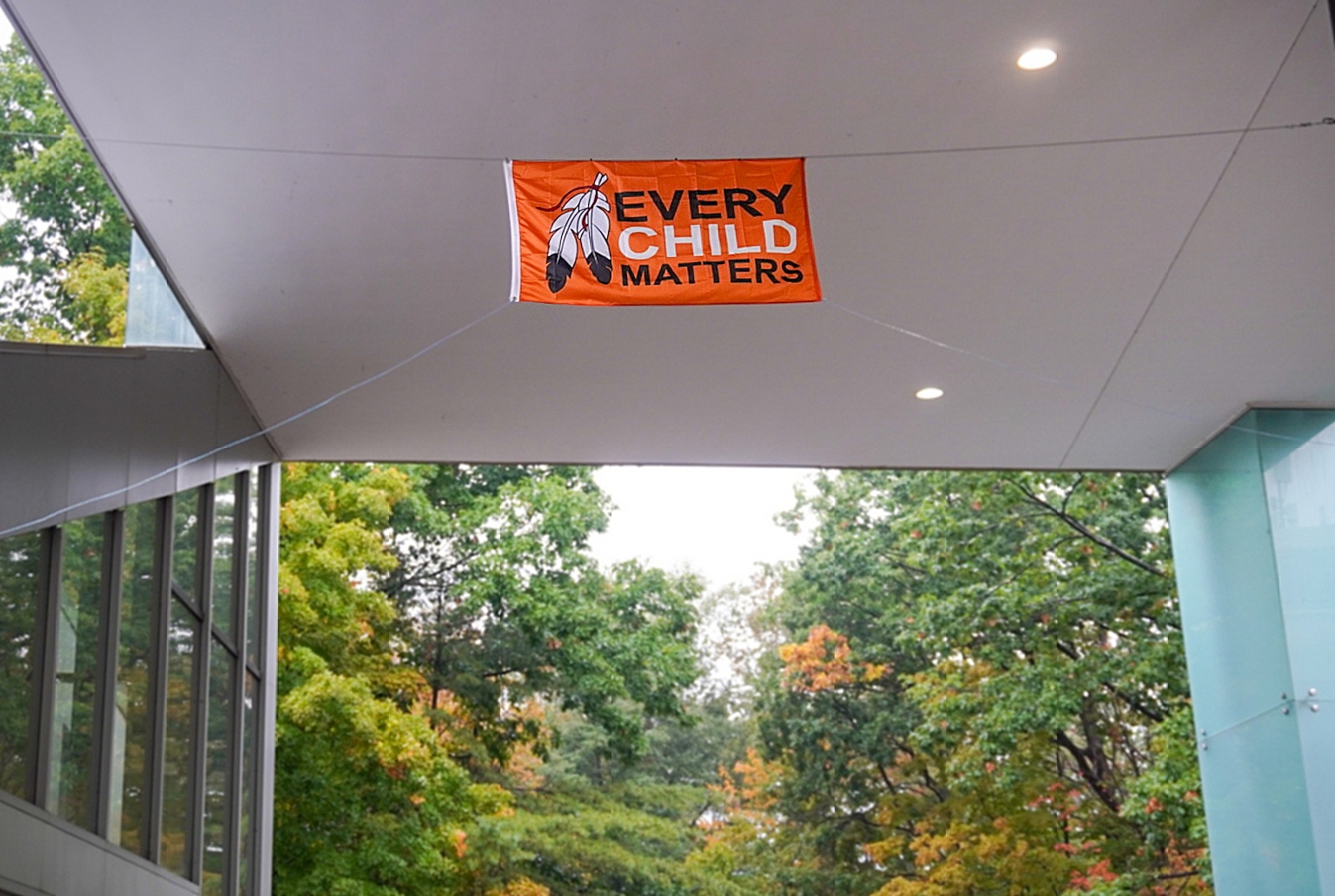Commemorating the thousands of lives claimed by Canada’s residential school system
U of T reminisces about the victims and survivors of residential school through gatherings, encouraging all to listen to Indigenous Peoples’ stories during Orange Shirt Day.
This September 30 marks the second time the National Day for Truth and Reconciliation, also known as Orange Shirt Day, is celebrated in Canada as a statutory holiday. The “orange shirt” component of the celebration was inspired by the story of Phyllis Webstad, a residential school survivor. The day itself serves to raise awareness on colonial violence faced by Indigenous children and communities throughout Canadian history.
On her first day at St. Joseph’s Residential School in Williams Lake, BC, Webstad, then six-years-old, was stripped of her orange shirt that her grandmother had gifted her. On September 30, 2013, Webstad shared her experience publicly and reflected on the intergenerational impacts of Canada’s Residential School system on Indigenous children, families, communities, language, and culture. “The color orange has always reminded me of that and how my feeling didn’t matter, how no one cared, and how I felt like I was worth nothing,” said Webstad.
Residential Schools were created to culturally assimilate Indigenous Peoples. Children were separated from their families, after which they slowly lose touch with their language and culture. To make matters worse, thousands of Indigenous children were physically and sexually abused at these schools, some who did not survive.
In 2015, the Truth and Reconciliation Commission of Canada reported 3,200 deaths at residential schools. Victims were buried in unmarked graves, and the remains of many remain undocumented.
U of T invites all students, staff, faculty, and all Canadians, to not only wear orange, but to listen to survivors’ experiences, to grieve for the missing or murdered, and to participate in reconciliation on Orange Shirt Day. Various events and activities are set to take place in celebration of Orange Shirt Day.
U of T’s Varsity Stadium has already raised the “Every Child Matters” flag in advance of Orange Shirt Day.
From 10:00 a.m. to 11:00 a.m. on September 30, U of T’s Hart House will be hosting a symposium featuring Andrew Wesley, the former Elder-in-Residence at First Nations House, as the keynote speaker. UTM Principal, Alexandra Gillespie, and U of T Vice President, People Strategy, Equity, and Culture, Kelly Hannah-Moffat, will both be addressing the community during the conference. Registration is required.
The Canadian government will also be broadcasting a one-hour-long commemorative gathering to honour survivors of Residential Schools.
It is important for attendees to have a proper mindset when participating in Orange Shirt Day events. “If anyone deserves a day of commemoration, it is the thousands of children who were abused, forgotten, and buried without ceremony in unmarked graves. This National Day for Truth and Reconciliation is to recognize the true history of Canada, and to ask yourself, what does reconciliation mean? Better to ask what we can do to right these wrongs,” says Brenda Wastasecoot, an Assistant Professor from the Centre for Indigenous Studies at U of T.
Looking beneath the glamourous surface of our contemporary society, recounts of tragic events depict the inhumane treatment Indigenous children have received in Canada’s history. As pursuers of higher education, it is important for U of T students to commemorate the victims of Canada’s Residential Schools, who were children whose lives were lost using the name of education.

